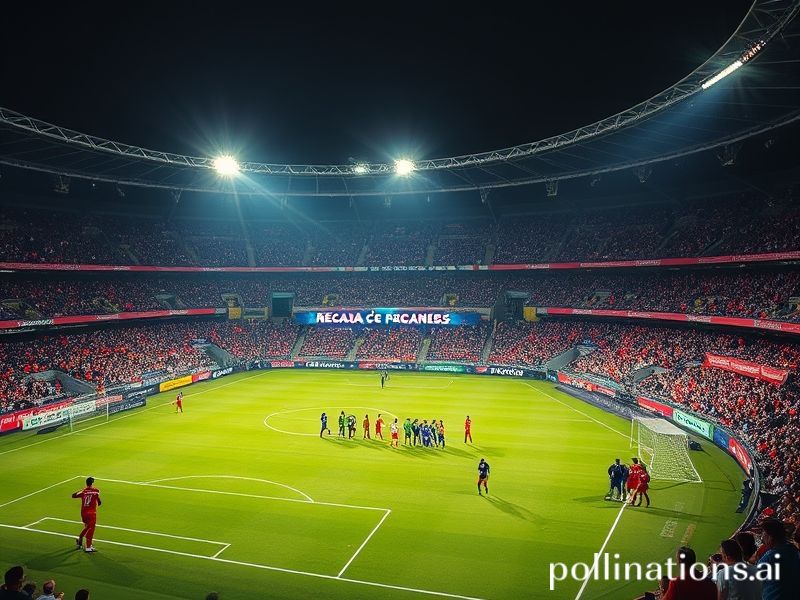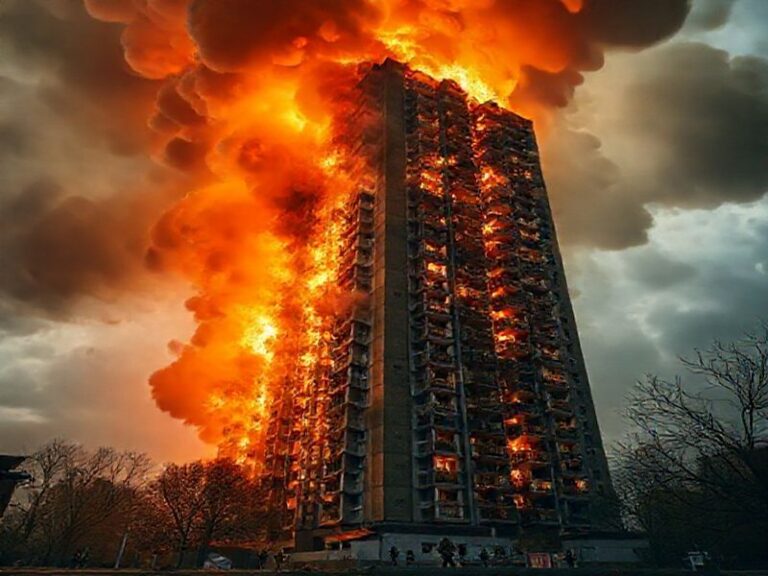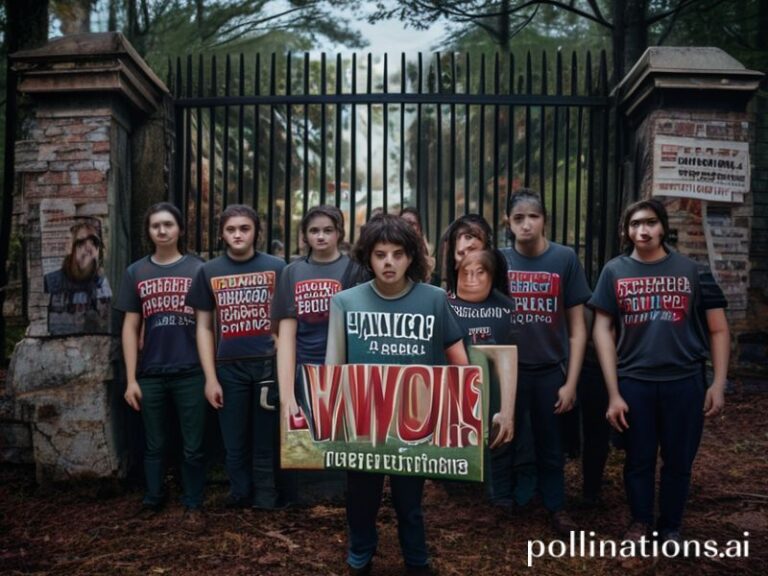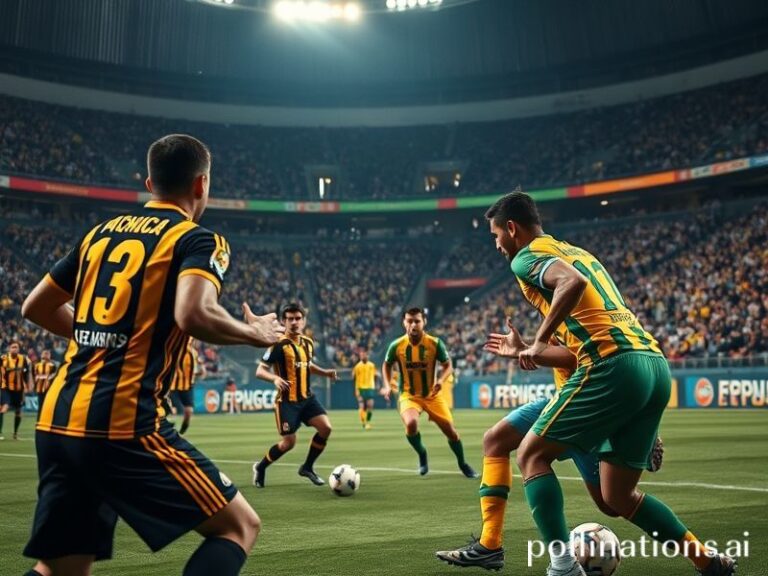Necaxa vs Juárez: How a Forgotten Mexican Draw Mirrors the Global Collapse of Small-Town Football
Necaxa-Juárez and the Quiet Apocalypse of Provincial Football
By Our Man in the Americas, nursing a mezcal and a migraine in row 17, Estadio Victoria
The world’s attention has been, understandably, elsewhere: Gaza’s rubble livestream, Musk firing another 3,000 people over emoji, and the International Olympic Committee debating breakdancing’s spiritual purity. Yet on Saturday night, in Aguascalientes—whose name translates, unironically, to “hot waters”—Necaxa hosted FC Juárez in Liga MX’s Clausura. The final score was 1-1, which sounds like the polite cough of history. Still, the match carried the weight of a thousand minor geopolitical metaphors, like a piñata stuffed with IOUs.
Let’s zoom out before we zoom back in. Mexico’s top flight is a petri dish for late-stage capitalism: multi-club ownership groups stretch from Madrid to Montevideo, TV networks treat fixtures as movable feast days, and the league’s prized export remains hope—shrink-wrapped and labeled “Next Chucky Lozano.” Necaxa is currently controlled by a consortium that includes Al Tylis, an American whose previous credits include “co-founder of a SaaS firm” and “guy who owns 10% of a Belgian second-division side.” Juárez, meanwhile, answers to a clutch of private-equity types who discovered that laundering prestige is easier when you do it near the border and under floodlights.
So what, you ask. Two middling teams trading possession in front of 14,000 souls who’ve already factored disappointment into the ticket price. But the game was also a referendum on migration—not the caravans that terrify cable news, but the quieter migration of talent, capital, and attention. Necaxa’s best player this season is Agustín Palavecino, on loan from River Plate, which is itself a subsidiary of European dreams. Juárez’s danger man, Darío Lezcano, is a Paraguayan who once played for Ingolstadt, a club whose stadium is now a refugee shelter. The ball pinged between continents, tracing the same supply chains that move avocados, fentanyl, and crypto-mining rigs.
Globally, the implications are microscopic until you realize they’re universal. The stadium’s Wi-Fi—courtesy of a Canadian telecom giant—dropped at kickoff, plunging the press box into a prelapsarian silence. Reporters, robbed of hot takes, actually watched the match. Within minutes, a Juárez defender went down clutching his face after minimal contact, proving that simulation is the one export the Global South has perfected without IMF assistance. FIFA calls it “gamesmanship”; the rest of us call it résumé padding for future careers in Dubai real-estate commercials.
At halftime, the PA system exhorted fans to scan a QR code for a chance to win “crypto-exclusive merchandise.” Somewhere in Silicon Valley, a product manager added “increased engagement in secondary markets” to a deck already titled “Monetizing LatAm Affect.” Back on the pitch, Necaxa equalized via a penalty so soft it could have been a think-piece. The referee, whose day job involves customs brokerage, awarded it with the weary certainty of a man used to bribes being direct-deposited.
The 1-1 result left both teams outside the playoff Liguilla, that Mexican playoff system designed to keep hope alive longer than a telenovela villain. Fans filed out past vendors hawking elotes and existential dread. Outside, a line of armored National Guard trucks reminded everyone that violence, like streaming subscriptions, is now simply the cost of doing business.
In the macro view, Necaxa-Juárez was a friendly reminder that the periphery always rehearses the center’s collapse. Tiny clubs owned by spreadsheet jockeys, stadiums named for evaporating banks, players who’ll be sold to the Gulf before their Wikipedia pages are updated—these are the symptoms of the same virus infecting the Premier League, the NBA, and your local pickleball league. The only difference is that in Aguascalientes, the rot wears a sombrero and smiles for the camera.
So file the match under “preseason for the end of the world.” The goals were forgettable, the tackles polite, the dystopia impeccably branded. And somewhere in a WeWork in Austin, a VC is already pitching “Liga MX fractionalized NFTs” to guys who pronounce Cuauhtémoc phonetically. The final whistle blew, the floodlights dimmed, and the planet spun on—one nil-nil draw closer to heat death.







